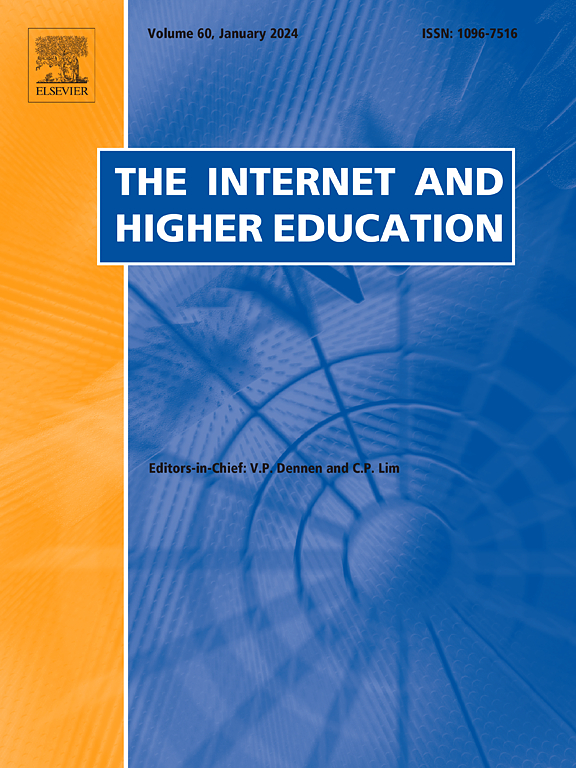The GenAI divide among university students: A call for action
IF 6.8
1区 教育学
Q1 EDUCATION & EDUCATIONAL RESEARCH
引用次数: 0
Abstract
The rapid pace of technological change with generative artificial intelligence is accelerating much faster than our capacity to understand and regulate it. Higher education institutions have been firmly focused on the impacts of this innovation on academic integrity while grappling with unknown longer-term impacts on students' academic study and future work. This mixed method study aims to capture student perspectives on their self-reported understanding of GenAI and intentions to use GenAI for their academic study during the critical diffusion stage and policy vacuum. Through a survey with 194 university students, the study explored student's understanding, knowledge, experience and intended use of GenAI tools to support their academic study. The paper presents three distinct student profiles established through cluster analysis of measures of digital and AI literacy, which are then explored in-depth through presentation of qualitative items. Notably, the cluster profiles demonstrate variation across the profiles of novice, cautious and enthusiastic users and patterns related to their knowledge of ChatGPT and intended uses. The paper draws on digital divide empirical literature and explores the potential to repeat digital divides among groups of students based on their access, capabilities, and capacity to leverage these for educational advantage. We propose that building upon a vast existing body of educational research about digital literacy inequalities offers rich insights into the current problems facing education institutions, specifically, what role do universities play in supporting students to understand and harness GenAI, now and in their futures.
大学生的基因分化:行动呼吁
人工智能的技术变革速度之快,远远超过了我们理解和管理它的能力。高等教育机构一直坚定地关注这一创新对学术诚信的影响,同时努力应对对学生学术学习和未来工作的未知长期影响。这项混合方法研究旨在捕捉学生的观点,了解他们自我报告的对GenAI的理解,以及在关键扩散阶段和政策真空期间使用GenAI进行学术研究的意图。通过对194名大学生的调查,该研究探讨了学生对GenAI工具的理解、知识、经验和预期使用情况,以支持他们的学术研究。本文通过对数字和人工智能素养措施的聚类分析,提出了三种不同的学生概况,然后通过介绍定性项目对其进行深入探讨。值得注意的是,集群概要文件展示了新手、谨慎用户和热心用户的概要文件之间的差异,以及与他们的ChatGPT知识和预期用途相关的模式。本文借鉴了数字鸿沟实证文献,并根据学生群体的访问、能力和利用这些资源获得教育优势的能力,探讨了在学生群体中重复数字鸿沟的可能性。我们建议,在现有大量关于数字扫盲不平等的教育研究基础上,为教育机构当前面临的问题提供丰富的见解,特别是大学在支持学生理解和利用GenAI方面发挥的作用,无论是现在还是未来。
本文章由计算机程序翻译,如有差异,请以英文原文为准。
求助全文
约1分钟内获得全文
求助全文
来源期刊

Internet and Higher Education
EDUCATION & EDUCATIONAL RESEARCH-
CiteScore
19.30
自引率
4.70%
发文量
30
审稿时长
40 days
期刊介绍:
The Internet and Higher Education is a quarterly peer-reviewed journal focused on contemporary issues and future trends in online learning, teaching, and administration within post-secondary education. It welcomes contributions from diverse academic disciplines worldwide and provides a platform for theory papers, research studies, critical essays, editorials, reviews, case studies, and social commentary.
 求助内容:
求助内容: 应助结果提醒方式:
应助结果提醒方式:


